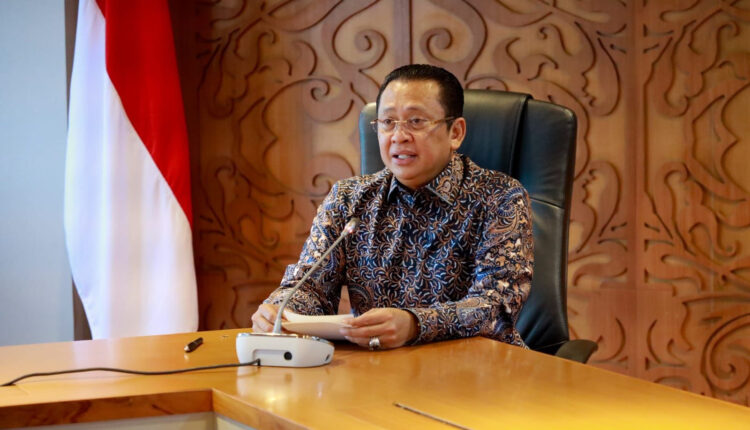MPR Chairman and UI Professor Appreciate 10 Years of Jokowi’s Government
Jakarta – Chairman of the MPR RI Bambang Soesatyo said that the Indonesian people should appreciate the 10 years of Jokowi’s government because thanks to President Jokowi, Indonesia can connect its regions.
This was conveyed by the Chairman of the MPR RI, Bambang Soesatyo, when asked by the media crew regarding President Jokowi’s 1 decade of government in Jakarta.
According to him, the development process has been realized by President Jokowi for the past 10 years by creating bridges that connect every island, village, and community with new hopes and opportunities.
The Indonesian nation has set a big goal, to leap to become a high-income country on par with developed countries by 2045, said Bamsoet.
This great ideal has been initiated by President Joko Widodo by establishing two priority strategies towards Golden Indonesia 2045, namely through industrial downstreaming and human resource development, he said.
The same thing was also conveyed by Professor of the Faculty of Economics and Business, University of Indonesia, Prof. Telisa Aulia Falianty. During the 10 years of President Jokowi’s administration, infrastructure development has been the focus of the government, he added.
According to Professor Telisa Aulia Falianty, President Jokowi deserves to be appreciated as the Father of Indonesian Infrastructure.
During President Joko Widodo’s 10-year term, infrastructure development has been the government’s focus. Professor of the Faculty of Economics and Business, University of Indonesia (FEB UI) Telisa Aulia Falianty assessed that Jokowi deserves to be appreciated as the Father of Indonesian Infrastructure.
He is the father of Indonesian infrastructure. Our APBN is around more than Rp 400 – 500 trillion per year allocated for infrastructure development,” said Telisa, when met by media crews at the FEB UI Campus, Salemba, Jakarta,
Prof. Telisa said that infrastructure development in the Jokowi era has facilitated connectivity, basic services, food distribution, and provided a multiplier effect for the Indonesian economy and society that reaches remote areas of the country, including the Remote, Frontier and Outermost (3T) areas.
Prof. Telisa assessed that this is in line with the vision and mission stated in Nawacita, which states that one of the priority agendas of the Jokowi-Ma’ruf Amin government is to build Indonesia from the periphery by strengthening regions and villages within the framework of a unitary state.
“This is also what needs to be appreciated from President Joko Widodo’s government. Building the outermost regions certainly has costs in terms of visibility of the economy, it is not necessarily visible, but socially, the impact will continue to reduce inequality for people in the 3T areas. There are social values that can later support its economic value,” he explained.
Telisa said that one of the successes of Jokowi’s infrastructure development was creating air connectivity to the 3T region. For a decade, Indonesia has succeeded in expanding its network of new airports, rehabilitating and developing airports, and organizing pioneering air transportation to support connectivity and reduce price disparities for people’s needs in the 3T region.
“So he (Jokowi) and of course his cabinet are those who are related to the development of connectivity in 3T. So if I see the development is quite significant. He also really emphasized the importance of infrastructure in the 3T area. Well, this is what we need to appreciate for the past 10 years,” he concluded.
